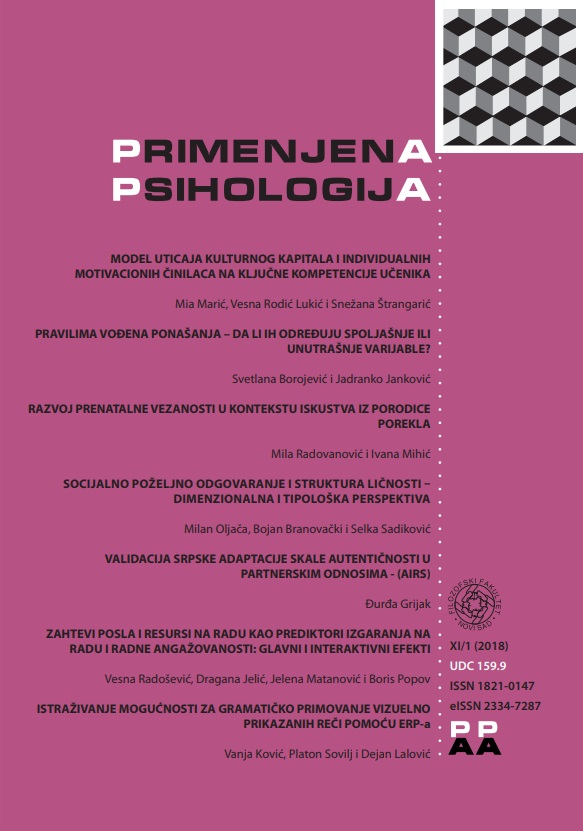TEMPORALNE PROMENE U EVALUACIJI POLITIČKIH STRANAKA: DA LI EVALUACIJA POLITIČKIH STRANAKA ODRAŽAVA IDEOLOŠKE STAVOVE?
TEMPORAL CHANGES IN THE EVALUATION OF POLITICAL PARTIES: DOES EVALUATION OF POLITICAL PARTIES REFLECT ATTITUDINAL IDEOLOGIES?
Author(s): Boban Petrović, Janko MeđedovićSubject(s): Psychology, Electoral systems, Political psychology
Published by: Филозофски факултет, Универзитет у Новом Саду
Keywords: political parties; political ideology; lexical approach; temporal changes
Summary/Abstract: Previous research has shown that since the beginning of the 1990s, differentiation in the ideological orientations of political parties in Serbia has been increased. Comparing three samples, we explored the temporal stability of relations between evaluations of Serbian political parties (DSS, DS, SRS, SPS, SNS, and LDP) and lexically derived ideological dimensions: Traditional and Religious Sources of Authority, Unmitigated Self-Interest, Communal Rationalism, and Subjective Spirituality. We hypothesize that: 1) political parties should be divided into conservative and socio-liberal parties, and this structure should become stable over time; 2) the evaluation of political parties should consistently reflect their political ideology orientation : conservative parties should be related to an indicator of conservative ideology, Traditional Religiosity, while socio-liberal parties should be related to a humanistic ideological orientation, Communal Rationalism. Data was collected in three time-points: 2010 (N = 102), 2014/15 (N = 358) and 2016 (N = 117) from university students in Serbia. In all three studies principal component analyses of evaluations of political parties showed that two components were extracted and interpreted as evaluations of the National-Conservative Parties and Socio-Liberal Parties (in 2010 and 2014), i.e. Democratic parties (in 2016). However, while the structure of evaluations of the National-Conservative Parties remained stable, the congruence of evaluations of the Socio-Liberal Parties decreased over time. Additionally, the results of regression analyses showed that evaluations of the National-Conservative Parties were rooted in Traditional and Religious Sources of Authority and UnmitigatedSelf-interest, but the percentage of explained variance decreased over time. The evaluations of the Socio-Liberal Parties had much weaker relations with ideological orientations throughout all three time-points. The findings suggested that there was some kind of ‘’ideological crisis’’ in Serbia, primarily regarding the Socio-Liberal Parties and their supporters.
Journal: Primenjena psihologija
- Issue Year: 10/2017
- Issue No: 4
- Page Range: 499-520
- Page Count: 22
- Language: English

